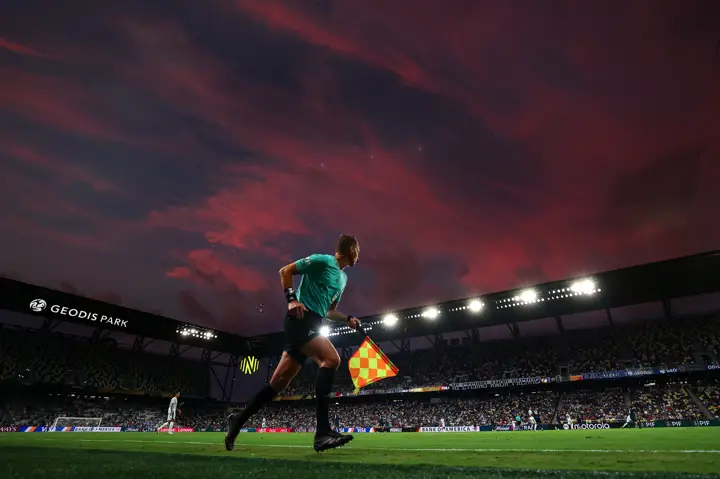Pierluigi Collina, Chairman of the FIFA Referees Committee, has expressed his satisfaction with the refereeing innovations introduced at the FIFA Club World Cup 2025, including the use of body cameras for referees, advanced semi-automated offside technology, and the new eight-second rule aimed at reducing time-wasting by goalkeepers.
The inaugural edition of the new 32-team tournament was the first FIFA competition to feature body cams, which have been positively received by fans and broadcasters alike.
The trial of the referee body cams was designed to explore whether the new camera angle could enhance the viewing experience by providing insight into the referee’s perspective during matches.
“The outcome of using the ref cam here at the FIFA Club World Cup 2025 went beyond our expectations,” Collina said.
“We thought it would be an interesting experience for TV viewers, and we’ve received great comments. We were asked: ‘Why not in all the matches?’ and even more: ‘Why not in all sports?’”
Beyond entertainment, the footage proved invaluable for FIFA’s coaching purposes, allowing officials to see exactly what referees observe on the pitch and to explain why certain incidents may have been missed during live play.
An example highlighted by Collina was a group stage match between Atlético de Madrid and Paris Saint-Germain, where the referee missed a handball incident due to a player blocking his line of sight.
Thanks to the referee cam footage, it was clear the referee could not have seen the incident live. The Video Assistant Referee (VAR) intervened, leading to a penalty award for Paris Saint-Germain after review.
The tournament also introduced an amendment to Law 12.2a, approved by the International Football Association Board (IFAB), which awards a corner kick if a goalkeeper holds the ball for more than eight seconds, with a visual five-second countdown to assist referees.
This replaced the previous indirect free kick penalty after six seconds. Collina described the new rule as “very successful” in improving match tempo and reducing time-wasting, with only two goalkeepers penalized, demonstrating respect for the rule and achieving its intended effect.
Additionally, an advanced version of semi-automated offside technology was employed to speed up offside decisions.
Collina noted the system’s effectiveness, saying, “The alert went to the assistant referees well before, when there was a clear offside position. It worked very well. We had goals correctly disallowed and correct decisions supported by the semi-automatic offside technology, we are very happy, very pleased.”
Throughout the tournament, a total of 117 match officials, including 35 referees, 58 assistant referees, and 24 video match officials, from 41 member associations officiated 63 matches.
Collina praised the quality of the competition, the players, and the officiating. “It was a great competition. The people attending the matches confirm this; it was well played by players and well refereed by match officials. All the referees who are here are 100% proud of being part of this first time ever,” he concluded.





























